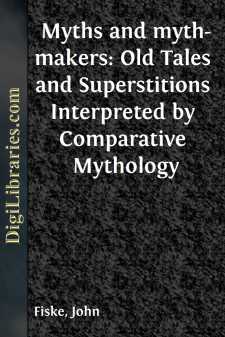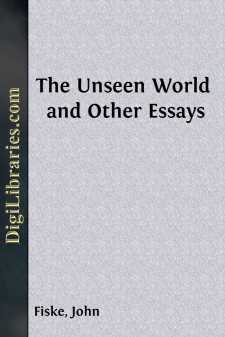Categories
- Antiques & Collectibles 13
- Architecture 36
- Art 48
- Bibles 22
- Biography & Autobiography 813
- Body, Mind & Spirit 142
- Business & Economics 28
- Children's Books 15
- Children's Fiction 12
- Computers 4
- Cooking 94
- Crafts & Hobbies 4
- Drama 346
- Education 46
- Family & Relationships 57
- Fiction 11828
- Games 19
- Gardening 17
- Health & Fitness 34
- History 1377
- House & Home 1
- Humor 147
- Juvenile Fiction 1873
- Juvenile Nonfiction 202
- Language Arts & Disciplines 88
- Law 16
- Literary Collections 686
- Literary Criticism 179
- Mathematics 13
- Medical 41
- Music 40
- Nature 179
- Non-Classifiable 1768
- Performing Arts 7
- Periodicals 1453
- Philosophy 64
- Photography 2
- Poetry 896
- Political Science 203
- Psychology 42
- Reference 154
- Religion 513
- Science 126
- Self-Help 84
- Social Science 81
- Sports & Recreation 34
- Study Aids 3
- Technology & Engineering 59
- Transportation 23
- Travel 463
- True Crime 29
The Destiny of Man Viewed in the Light of His Origin
by: John Fiske
Categories:
Description:
Excerpt
I.
Man’s Place in Nature, as affected by the Copernican Theory.
When we study the Divine Comedy of Dante—that wonderful book wherein all the knowledge and speculation, all the sorrows and yearnings, of the far-off Middle Ages are enshrined in the glory of imperishable verse—we are brought face to face with a theory of the world and with ways of reasoning about the facts of nature which seem strange to us to-day, but from the influence of which we are not yet, and doubtless never shall be, wholly freed. A cosmology grotesque enough in the light of later knowledge, yet wrought out no less carefully than the physical theories of Lucretius, is employed in the service of a theology cumbrous in its obsolete details, but resting upon fundamental truths which mankind can never safely lose sight of. In the view of Dante and of that phase of human culture which found in him its clearest and sweetest voice, this earth, the fair home of man, was placed in the centre of a universe wherein all things were ordained for his sole behoof: the sun to give him light and warmth, the stars in their courses to preside over his strangely checkered destinies, the winds to blow, the floods to rise, or the fiend of pestilence to stalk abroad over the land,—all for the blessing, or the warning, or the chiding, of the chief among God’s creatures, Man. Upon some such conception as this, indeed, all theology would seem naturally to rest. Once dethrone Humanity, regard it as a mere local incident in an endless and aimless series of cosmical changes, and you arrive at a doctrine which, under whatever specious name it may be veiled, is at bottom neither more nor less than Atheism. On its metaphysical side Atheism is the denial of anything psychical in the universe outside of human consciousness; and it is almost inseparably associated with the materialistic interpretation of human consciousness as the ephemeral result of a fleeting collocation of particles of matter. Viewed upon this side, it is easy to show that Atheism is very bad metaphysics, while the materialism which goes with it is utterly condemned by modern science. But our feeling toward Atheism goes much deeper than the mere recognition of it as philosophically untrue. The mood in which we condemn it is not at all like the mood in which we reject the corpuscular theory of light or Sir G.C. Lewis’s vagaries on the subject of Egyptian hieroglyphics. We are wont to look upon Atheism with unspeakable horror and loathing. Our moral sense revolts against it no less than our intelligence; and this is because, on its practical side, Atheism would remove Humanity from its peculiar position in the world, and make it cast in its lot with the grass that withers and the beasts that perish; and thus the rich and varied life of the universe, in all the ages of its wondrous duration, becomes deprived of any such element of purpose as can make it intelligible to us or appeal to our moral sympathies and religious aspirations.
And yet the first result of some of the grandest and most irrefragable truths of modern science, when newly discovered and dimly comprehended, has been to make it appear that Humanity must be rudely unseated from its throne in the world and made to occupy an utterly subordinate and trivial position; and it is because of this mistaken view of their import that the Church has so often and so bitterly opposed the teaching of such truths....












